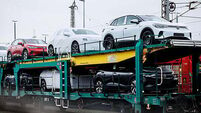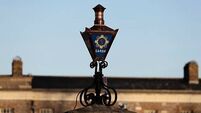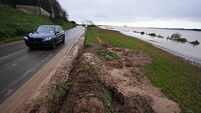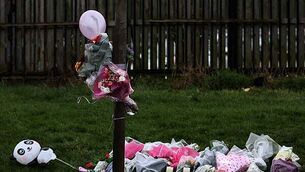Who is independent presidential hopeful Maria Steen?
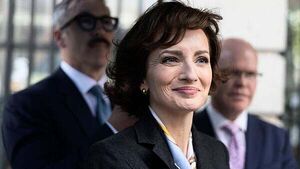
Kenneth Fox
On Thursday, Independent hopeful Maria Steen announced that she had the support of 10 Oireachtas members, putting her halfway to securing the necessary 20 Oireachtas nominations.
She secured the public backing of eight TDs and senators. At the same time, another two have given their commitment and are expected to make a statement in the coming days, according to Aontú leader Peadar Tóibín.
While candidates like Jim Gavin, Heather Humphreys, or Catherine Connolly might be more well-known, Maria Steen is coming in under the radar by comparison.
Who exactly is she, and where does she stand compared to other presidential hopefuls? Here is what you need to know about Maria Steen.
Who is Maria Steen?
Ms Steen is described as a “conservative” campaigner. A barrister by profession, she also holds a degree in architecture.
She has five children, ranging in age between three and 18. She has educated her children at home and has a degree in Montessori teaching, she wrote in Irish Catholic this week.
Ms Steen is a member of the Catholic advocacy group, the Iona Institute, and previously represented them during debates in advance of referenda.
This included the 2015 referendum on marriage equality, during which she campaigned for a no vote. The referendum passed by 62 per cent.
She also represented the Iona Institute in the 2017 Citizens’ Assembly discussing Ireland’s abortion laws.
What is the Iona Institute?
The Iona Institute is an Irish, socially conservative organisation that advocates for the advancement and promotion of the Christian religion and what it sees as the religion's social and moral values.
Founded in 2007 by columnist David Quinn, it promotes conservative Christian values and opposes abortion, euthanasia, assisted suicide, same-sex marriage, civil partnerships, lifting restrictions on divorce, adoptions by same-sex couples, and surrogacy.
What is she known for?
Ms Steen came under the spotlight during both the same-sex marriage referendum in 2015 and the 2018 abortion referendum.
In the run-up to the same-sex marriage referendum, she was among the Iona Institute members who threatened legal action against RTÉ over claims by Rory O'Neill that the Iona Institute was homophobic. She received part of the €85,000 settlement.
When it comes to the abortion referendum, at a meeting in March 2017, she spoke against the idea of repealing the 8th Amendment or changing Ireland’s abortion laws, arguing that holding a referendum on the matter would be “wrong”.
She suggested that the 8th Amendment “protected a vulnerable minority” and argued that the cultural change caused by repealing the laws would be “significant, highly regressive, and fundamentally unjust”.
She later campaigned for a no vote in the 2018 referendum and appeared in several television debates. The referendum passed by 66 per cent.
When it came to the more recent referendum on family and care, otherwise known as the Mother in the Home Referendum, she was part of the side that successfully campaigned against the failed referendum.
In one televised debate, Ms Steen took part in a one-on-one debate with then Tánaiste Micheál Martin.
Why does she want to run for President?
Writing in the Irish Catholic, Ms Steen said she was seeking to run in the presidential election as she “wishes to be a voice supportive of the values and principles enshrined in our Constitution: Family first”.
If she gets on the ballot paper, she will not be the first member of her family to run in the presidential election.
Her aunt Joan Freeman, the founder of Pieta House, unsuccessfully contested the 2018 presidential election.
However, Ms Steen faces a major challenge to secure her place on the ballot paper.
Although the support of Independent TD Carol Nolan is secured and Aontú appears to be on board, she is likely to struggle to get 20 Oireachtas members to back her campaign.
The prospect of securing the backing of four county councils also seems increasingly unlikely.
